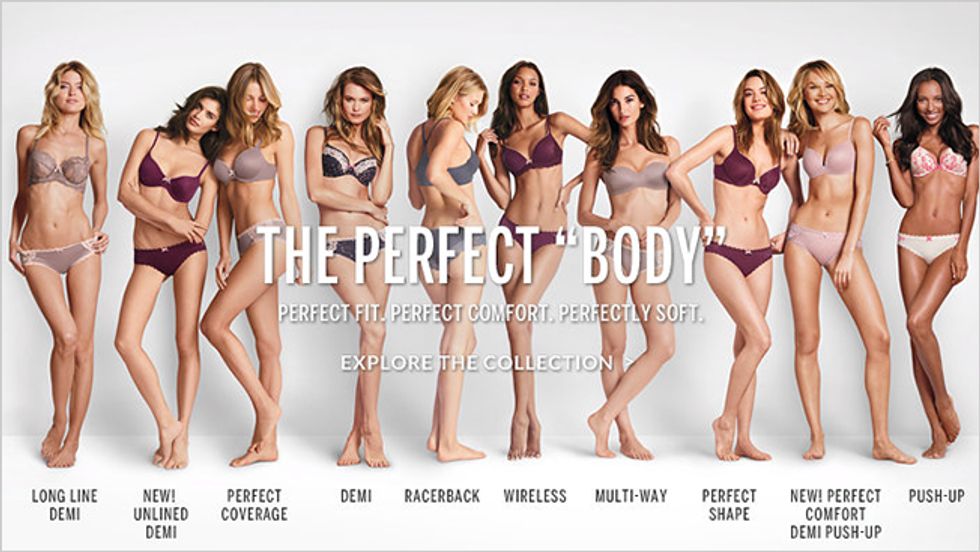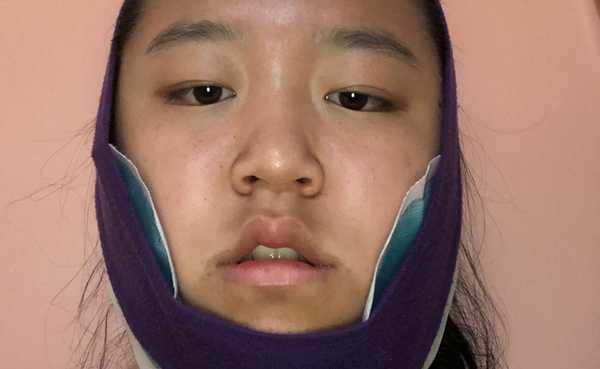When our bodies did suddenly become a subject of people’s opinions? When and who gave the public permission to openly judge how we look? When turning on your TV, scrolling down the social media pages or, opening up an average fashion magazine the first thing to see are skinny, tall, and basically “perfect people”. From the earliest years, people are bombarded with the image of perfection that is so unrealistic in the real world. "Have round hips, small waist, loooong legs, shiny hair, and wear make-up" (but not too much… but look like you are… but not really). Hey, don’t get me wrong- I give props to all the girls that can achieve that. But most of us “regular human beings” are not as lucky.
Fashion industries promote looks and behaviors which are not only fake, but most important- unhealthy. We are all surrounded by these images of women which are not only very difficult to attain but also just really- unrealistic.
But these images end up being what we want to look like. Who we want to become. Because celebrities are associated with success and fame. And what young adult or teenager does not want that? The problem of girls and women comparing themselves to that unrealistic image has gotten more and more noticeable throughout the society in the recent years.
A look at the measurements of Playboy centerfolds and Miss America finalists over the past 20 years shows that, although these women who to many symbolize beauty, have been getting slightly taller, they have also been weighing less and less. People observe the change, and want to follow what’s considered “good looking” and “beautiful”.
These “false body image” ads, showing bodies that are not real at all or that are not very realistic or representative of the general population, have far-reaching effects. As I read at Mirror Mirror’s webpage (an organization who helps people with eating disorders) “It might seem that we could recognize when ads showed us something not real. But we still tend to trust what we see in the media and body image can easily be confused. It can even lead to the development of eating disorders like anorexia and bulimia”.
(Victoria's Secret "The Perfect Body" Campaign)
Although the media does not directly cause eating disorders, it is often a trigger factor for them. A lot of people are very highly influenced by popular culture; they learn that being fat is bad. Kids, from the youngest years, see being overweight as the reason for being unpopular, not having friends, or being unsuccessful. That trend influences young kids, they reach out to the most drastic ways of losing weight. And that is how eating disorders start.
The unrealistic body image seen in movies, on TV/ social media is not the only reason someone becomes anorexic or bulimic. But the media promotes thinness as the perfection and that can be contributing factor along with other causes.
Media images also cause girls to think of themselves as sexual objects, valued only for how they look. They may not understand why they want to look like the girl in a magazine. They just know they want to. With the growth of so-called “YouTube stars” or “Instagram models” it is hard to escape this fake world of perfection. Young women are being paid to post pictures with products that companies hope to sell. They take videos or pictures to basically dictate who you should be in order to “be cool”. I ask you now- go on YouTube and search for some of the most played popular female songs. Watch the music videos for them.
Does it make you want to become a top scientist and search for cure for cancer? Or rather, upside down twerk on the wall? (Not saying that there’s anything wrong with that…). But we need more empowerment! Young girls are watching these videos, and they want to become just like these female stars. Why not teach them to be confident in themselves and their “brains” perhaps?
(Essena O’Neill- an "Instagram Star" who decided to reveal the truth about her pictures. She changed the original captions into ones explaining the truth begind them)
The recent research shows that young girls are highly influenced by body image created in media. A University of Central Florida poll found that 50 percent of 3-to-6-year-old girls worry that they are fat. Because the image promoted by media is so unrealistic to reach it can be very hard for people to feel secure and happy with their bodies.
So what do we do about that? It seems to me like this is a never-ending story. As if whatever we do is not enough, because it is impossible to fight against major fashion industries or media. But I guess taking a bit of your time to critically think about what you are watching, what you are consuming, and what you hope to become might help a bit. If we spend few minutes of our time trying to empower young women, and help them understand that their bodies are not what makes them who they are, maybe one day we can change this crazy institution?
So I ask you all- every day when you wake up, look in the mirror and tell yourself that you are beautiful. That you are smart. And that you can go out there and conquer the world. Because we need more empowered women out there.
“Here’s to strong women. May we know them, we may be them, may we raise them”- Stacey Bendet
























